Excerpt from Never Too Late to Go Vegan: The Over-50 Guide to Adopting and Thriving on a Plant-Based Diet,* copyright © Carol J. Adams, Patti Breitman, Virginia Messina, 2014. Reprinted by permission of the publisher, The Experiment.
Two fatty acids in foods are essential nutrients, which means they are absolutely required in the diet. One, called linoleic (lin oh LAY ik) acid, is a member of the omega-6 family of fats. It’s abundant in all kinds of plant foods; certain vegetable oils, such as corn and soy oil, are particularly rich in this fat. You really never have to worry about getting enough linoleic acid. A vegan diet will provide plenty of it without any effort from you.
The other essential fat is alpha-linolenic (lin oh LEN ik) acid (ALA), which is a member of the omega-3 family of fats. It’s found in only a handful of plant foods, so while you don’t need much of it, you do need to pay attention to food sources. Flaxseeds are an especially good source of this nutrient. They have a hard outer shell that resists digestion, so purchase ground flaxseeds or flaxseed meal or grind whole seeds in a coffee grinder. Be sure to store it in the freezer to protect it from going rancid.
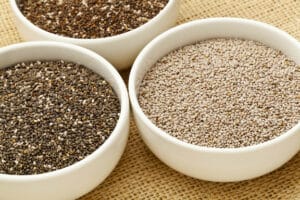 You can sprinkle flaxseed meal on oatmeal or any type of grain or blend it into smoothies. It also makes a wonderful egg replacer in baking. Chia and hemp are other tiny seeds that provide ALA. (Although hemp is part of the cannabis family, the plants grown for food don’t have the drug-like properties of marijuana.)
You can sprinkle flaxseed meal on oatmeal or any type of grain or blend it into smoothies. It also makes a wonderful egg replacer in baking. Chia and hemp are other tiny seeds that provide ALA. (Although hemp is part of the cannabis family, the plants grown for food don’t have the drug-like properties of marijuana.)
You can also get your daily dose of ALA by sprinkling a few teaspoons of chopped walnuts on cereal or by dressing a salad with a vinaigrette made with walnut oil. Soy foods also provide small amounts, and leafy green vegetables provide a little bit of this fat, too, although not enough to meet your ALA needs on their own.
Some vegan diets that are ultra-low in fat may fall short of needs for alpha-linolenic acid. It’s important to make sure you’re including at least one good food source of this fat in your diet every day. ALA is especially important for healthy skin and it may also help reduce risk for heart disease.
The following shows how easy it is to meet ALA needs:
Walnut, soy, or canola oil
Women: 1 tablespoon
Men: 4 teaspoons
Flaxseed oil
Women: ¾ teaspoon
Men: 1 teaspoon
Hemp seed oil
Women: 2 teaspoons
Men: 3 teaspoons
Walnuts
Women: 3 walnut halves
Men: 4 walnut halves
Ground flaxseeds
Women: 3 teaspoons
Men: 4 teaspoons
Chia seeds
Women: 1½ teaspoons
Men: 2 teaspoons
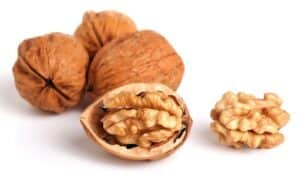 The omega-3 family of fats also includes DHA (docosahexaenoic acid) and EPA (eicosapentaenoic acid). You’ve probably heard about these fats because they are the ones that are abundant in fatty fish and fish oil supplements. They aren’t considered essential because humans can synthesize them from the essential fat ALA—the one found in flaxseeds, hemp seeds, and walnuts. So technically, if you are eating enough ALA, you’ll make enough DHA and EPA. The reality, though, is that production of DHA and EPA is not very efficient, especially as we age.
The omega-3 family of fats also includes DHA (docosahexaenoic acid) and EPA (eicosapentaenoic acid). You’ve probably heard about these fats because they are the ones that are abundant in fatty fish and fish oil supplements. They aren’t considered essential because humans can synthesize them from the essential fat ALA—the one found in flaxseeds, hemp seeds, and walnuts. So technically, if you are eating enough ALA, you’ll make enough DHA and EPA. The reality, though, is that production of DHA and EPA is not very efficient, especially as we age.
People who don’t have direct sources of these fats in their diets, including vegans, have lower blood levels of DHA and EPA.6 But does it matter? That’s something nutrition experts don’t know. There is evidence that DHA and EPA help to protect cognitive function with aging and also may reduce risk for heart disease. They may also be valuable in reducing depression and in helping to reduce symptoms of painful conditions, such as rheumatoid arthritis. However, that evidence is conflicting and these are topics of ongoing research with no real consensus among the experts.
For now, with the issue unresolved, it may make sense to take a small daily supplement of these fats. Fortunately, you don’t need to eat fish or take fishy-tasting supplements to get them. Fish get their DHA and EPA by eating microalgae, and we can get them from the same source. Supplements providing algae-derived DHA and EPA are a much better option for getting these fats for anyone, vegan or not, since they are a better choice for the environment. Ginny recommends a daily supplement that provides between 200 and 300 milligrams of DHA and EPA combined.
- For more tips on plant-based nutrition, make sure to browse VegKitchen’s Nutrition page.
*This post contains affiliate links. If the product is purchased by linking through this review, VegKitchen receives a modest commission, which helps maintain our site and helps it to continue growing!



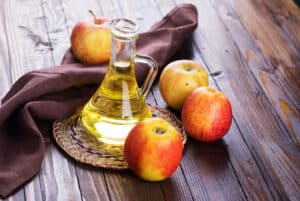
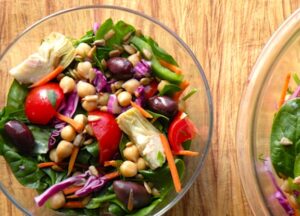
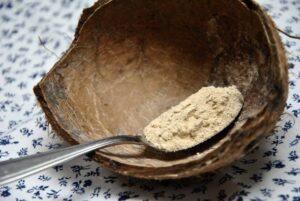
Amy says
Hi there! I work with a company called Ascenta that develops fish oil products. One of our products, NutraVege, is derived from algae (the echium plant) and is a really complete source of omega-3 for vegans (which just happens to be $3 off at the moment). Check out http://www.ascentahealth.com/products/human/nutravege/ if you would like to learn more and please feel free to contact me with any questions. Thanks for sharing information about this very important topic!